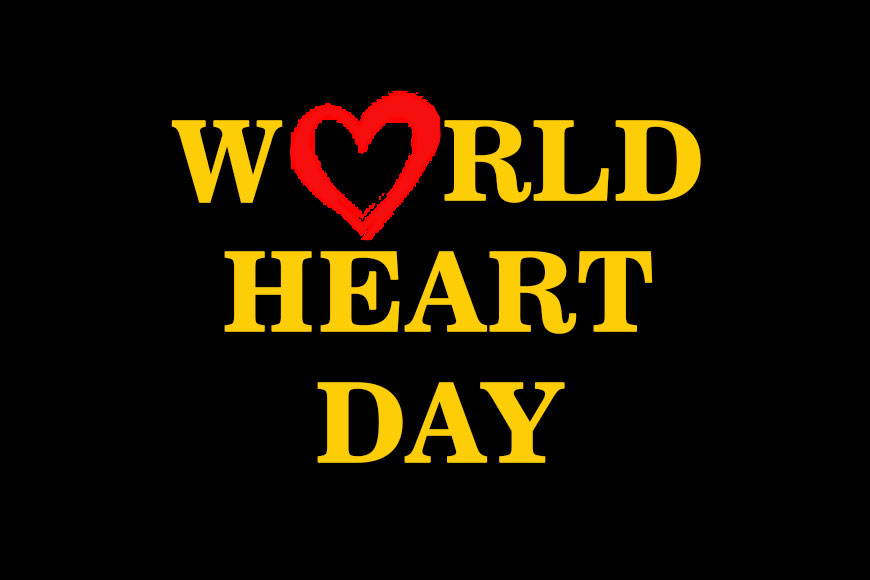Listen To Your Heart

A recent study by Cardiovascular Sciences and Research Institution has found around 5 per cent of patients who recovered from COVID -19 had suffered and died of a heart attack, even seven to eight weeks post COVID recovery and returning home from hospitals. Jayadeva Institute of Cardiovascular Sciences and Research, Bengaluru, has disclosed that over the past two years over 2,400 cases of heart attack have been recorded among patients under the age of 40. Out of them 1,250 fresh heart attack cases have been reported among patients below 35 years. So even if you are not affected with COVID-19, heart attack in the younger generation is increasing at an alarming rate in India and in West Bengal. “Bengalis are considered genetically more prone to heart diseases and diabetes,” said research scholar Pradyumna Das of Science College.
The recent death of actor Sidharth Shukla at the age of 40 has drawn attention towards the rising number of cases of heart ailments among those in their 30s and 40s, even when they are seemingly fit. In May 2012, world leaders committed themselves to reduce the deaths caused by non-communicable diseases by 25% by 2025. According to the World Health Organisation (WHO), cardiovascular diseases take the lives of 17.9 million people every year, which is 31% of all the global deaths. So, World Heart Day is celebrated on September 29 every year, to spread awareness about cardiovascular diseases, which cause nearly half of all the non-communicable diseases in the world.
Suchetana Chatterjee, Nutritionist and Associate Diet Expert at ‘Freedom from Diabetes’ said: “It’s important that we keep in mind a few nutritional points related to the Indian diet to keep our mind and heart healthy. We need to eat a balanced diet containing all nutrients and not to forget water.
Even the link between COVID-19 and heart disease has raised concern among doctors of Kolkata. As Dr Prateep Sen, visiting Consultant of Nightingale Hospital and Kothari Hospital said: “Covid is expressed as a clinically respiratory disease where people experience respiratory problems and are admitted to hospitals. But the worst part is in a covid situation, patients might get a mild myocardial infarction.” Hence Dr Sen suggests, those affected by COVID, need constant follow up to rule out myocarditis even after recovery. “Population at large needs to be vaccinated as soon as possible. Mass vaccination is the need of the hour. At present everyone is depressed, everyone is traumatised, everyone wants to rush out, and as responsible citizens we should absolutely avoid all these to keep our hearts strong and healthy and keep COVID at bay.”
On World Heart Day, across Kolkata and India, different educational programs are designed to engage the public. Information about cardiovascular diseases and ways to prevent them is communicated through public talks, podcasts, posters, and leaflets. Also held in conjunction with World Heart Day are runs, walks, concerts, fund-raising and sporting events, free health checks, and other activities that have a positive impact on public health. In addition, scientific meetings and gatherings of international cardiovascular research organizations and medical societies are held on or in the days leading up to World Heart Day. More than 90 countries participate in the celebration each year, and as a result of these international efforts, World Heart Day has proved an effective method for spreading information about cardiovascular health.
It has been found generally that the most important behavioural risk factors of heart disease and stroke are unhealthy diet, physical inactivity, tobacco use and harmful use of alcohol. The effects of behavioural risk factors may show up in individuals as raised blood pressure, blood glucose, blood lipids, being overweight and obesity. These intermediate risk factors can be measured in primary care facilities and indicate an increased risk of heart attack, stroke, heart failure and other complications.
Jayadeva Institute of Cardiovascular Sciences and Research, Bengaluru, has disclosed that over the past two years over 2,400 cases of heart attack have been recorded among patients under the age of 40. Out of them 1,250 fresh heart attack cases have been reported among patients below 35 years.
Suchetana Chatterjee, Nutritionist and Associate Diet Expert at ‘Freedom from Diabetes’ said: “It’s important that we keep in mind a few nutritional points related to the Indian diet to keep our mind and heart healthy. We need to eat a balanced diet containing all nutrients and not to forget water. One has to incorporate more fibres in the diet like wheat grains, pulses, vegetables, fruits that contain less sugar and more fibre. Salads are a must in the diet. Oils like mustard, groundnut and sunflower are good for the heart, but one has to make sure the amount per day does not exceed more than 15 to 20 ml. Salt consumption should not exceed 5 grams per day. To include nuts such as almonds, walnuts and seeds such as chia which are rich in antioxidants and minerals. Regular monitoring of blood pressure, sugar levels and overall weight is very necessary.”
The only goal for the Word Heart Day 2021 is harnessing the power of digital health to improve awareness, prevention and management of CVDs globally. So, one should always follow the road that leads towards a healthy heart.










